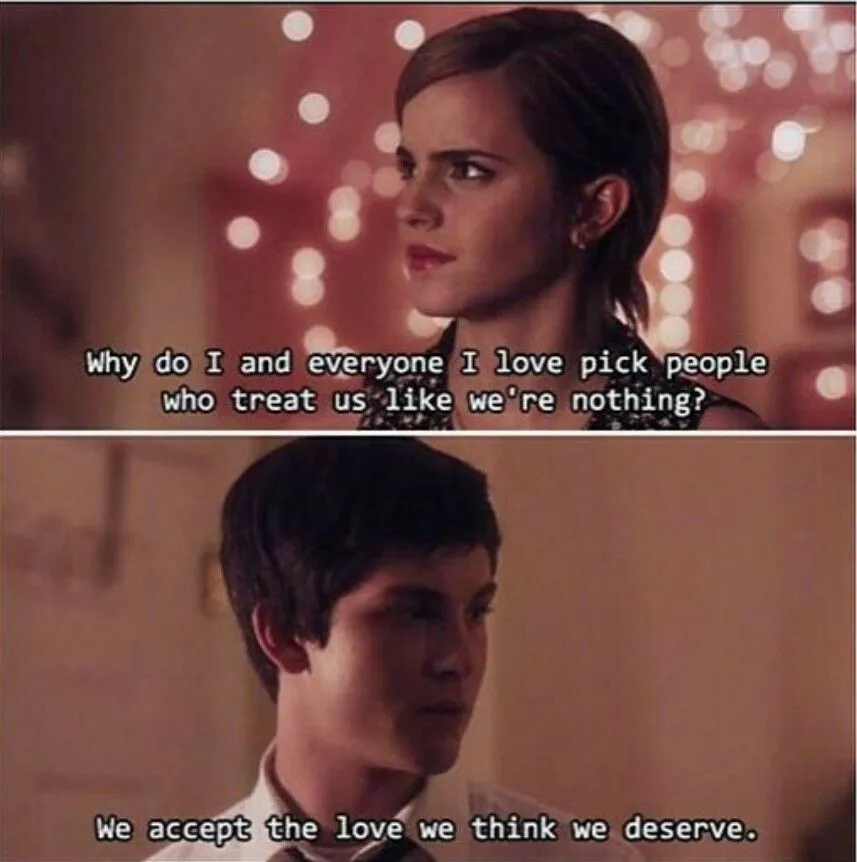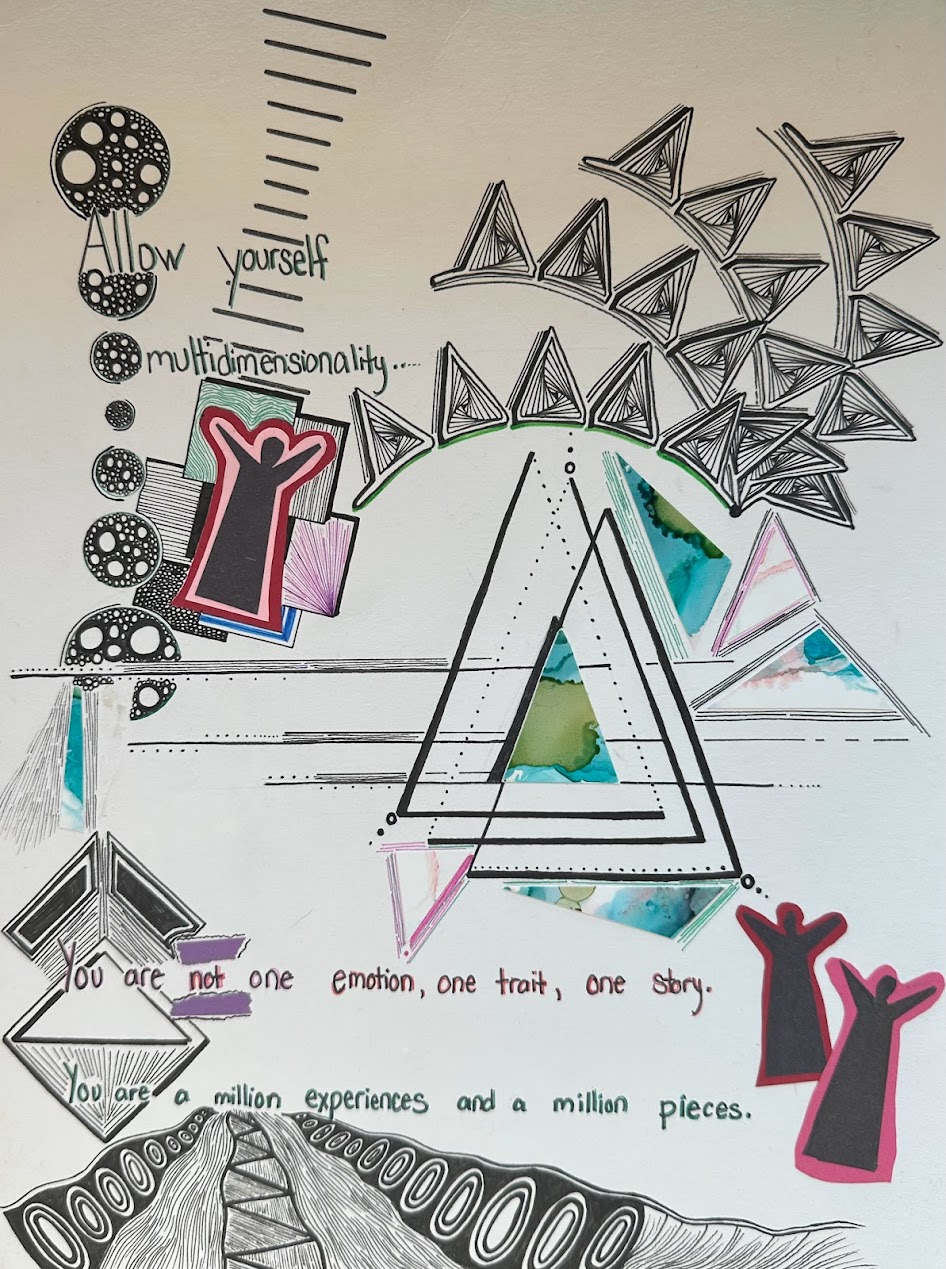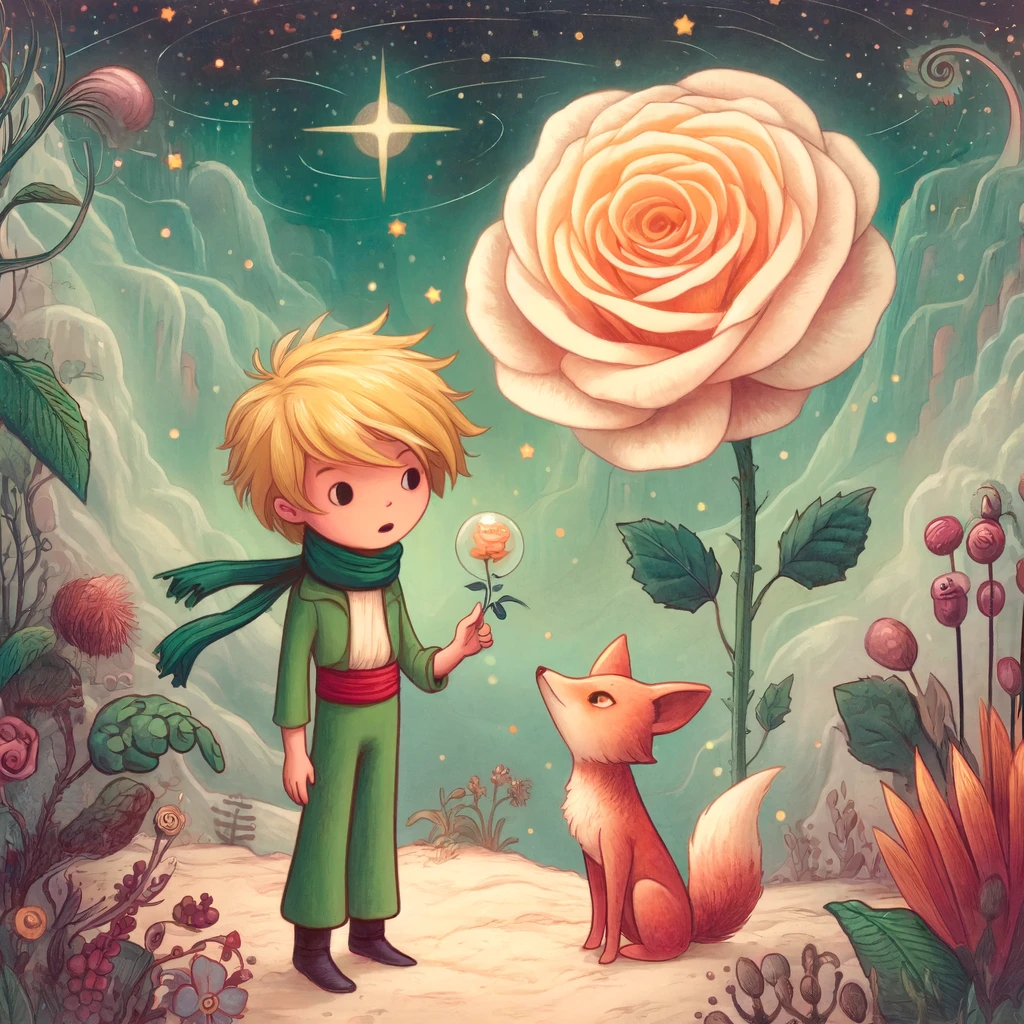I’ve been spinning on this orb of a floating rock (Earth) in my specific body of consciousness (that’s me!) for 31 years now. This year has brought an immense amount of growth and a deeper appreciation for ideologies that bring peace to my understanding of what it means to be alive in this world. So, as a birthday gift to myself—and to my homies and any strangers tuning in—I want to share some words of wisdom that have resonated deeply with me over the past year. Shamelessly, I admit many of these quotes might have popped up in motivational posts on my FYP, and some might even seem painfully obvious, they’ve nonetheless tugged at parts of my soul that were lying dormant, awakening aspects of my being I never knew existed.
So, without further ado, here are 31 lessons from this year that I’m taking with me as I continue on this wild, wonderful human journey! I’ve sorted them into themes for easier navigation. Enjoy!
The Art of Living and Creating
1. Appreciate art.
Art transcends ordinary conversation, communicating experiences in ways words often cannot. Art elicits emotions and fosters empathy, allowing us to connect deeply with the experiences of others. Remember, art is everywhere!
- When I say art, I mean every form imaginable—from drawings and paintings to music, dance, films, shows, manuscripts, poetry, and everything in between!
- Creating your own art is the opposite of consuming. It’s about making something new, not just absorbing what’s already there.
2. You don’t have to be good at your hobbies.
Seriously, what even is the metric for “good”? Are you having fun?? That’s what really matters!
- Community over competition. I firmly believe hobbies should nourish your soul, not turn into a competition to see who’s the best. Who cares if you’re the best among others in your hobbies anyway? The real question is, are you happy with the experience? There’s a certain art to loving your hobbies—it’s hard to put into words, but it’s definitely there.
Understanding Time and Existence
3. “There is only the eternal now.”
As Alan Watts said, even our memories are made in the present. Your anxious thoughts about the future? They’re happening now, too.
4. The only constant in this world is change.
Embrace it, for it is the one true certainty we have.
5. We’re animals, not masters of this world.
We emerged from this planet through natural processes and millions of years of evolution. We belong to the Earth, not the other way around.
6. There are 2 types of realities, objective reality and imagined reality.
Objective reality, which is all that physically exists, and imagined reality, which we (humans) create in our minds. Both shape our perception of the world and our place in it.
- Objective reality includes things that physically exist and can be observed and quantified by anyone. These aspects of reality remain consistent regardless of human beliefs or feelings.
- Example: A tree is an objective reality. It physically exists in the world; it can be seen, touched, and measured. Whether a person believes in its existence or not, the tree remains a tangible entity with physical properties.
- Imagined reality refers to things that exist because people collectively believe in them. These are social constructs—things that do not have physical forms but are agreed upon by human societies and thus influence our systems, behaviors, and interactions.
- Example: Money is an imagined reality. The paper or metal used to make coins and bills has no inherent value except for the value that humans agree to assign to it. The concept of money, therefore, exists because people collectively believe in its value and its ability to act as a medium of exchange. The same goes for corporate entities, nations, or human rights; none of these have a physical existence like a tree or a stone, but they are very real in the effects they have on the world due to the collective belief systems built around them.
7. What’s the meaning of life? It turns out that being alive means we are descendants of dead stars, looking back up into the cosmos from which we originated.
The elements that compose our bodies were forged in the fiery cores of ancient stars that exploded into supernovae billions of years ago, scattering their enriched guts across the cosmos. These stellar remnants traveled through space, eventually coalescing to form our solar system, our Earth, and all life upon it. This cosmic heritage links us directly to the universe from which we originated.
- Physicists tell us that the particles in our bodies are as old as the stars, continually recycled from the dust of the universe. From this perspective, life is not just a biological phenomenon but a continuation of the universe’s ongoing story—a story written in the language of carbon, nitrogen, and oxygen, all elements created in the bellies of stars. This connection tells us that looking up into the night sky is essentially a way of looking back at our origins, a reflection of our own cosmic lineage.
This is a really good TEDtalk on the subject
Emotions and Relationships
8. Every interaction is an exchange of energy.
A principle that resonates from the most fundamental molecular level to the complex dynamics of human relationships. At the core of everything in the universe, atoms and molecules perpetually interact, exchanging electrons in endless dances that create and transform matter. In the realm of human interactions, this principle is mirrored in how we connect and communicate with one another. Each gesture, whether a smile or a sigh, triggers a cascade of emotional energy that affects those around us.
- This interconnectedness highlights a universal truth: just as particles influence one another in the vast network of the universe, so too do our emotions and actions resonate in the network of human connections, perpetuating a cycle of energy that defines the essence of life itself.
9. To be loved is to be seen.
By “seen”, I don’t mean with just the eyes. See #23.
10. The act of love is to foster growth.
I feel so strongly about this, so strong that I wrote a whole blog post on it.
11. The people you love are a reflection of you.
Just think about it. Why do you cherish your friends, partners, and the like? It’s likely because they mirror aspects of yourself that you admire and appreciate. Conversely, if you find yourself surrounded by individuals who don’t bring out the qualities you love most in yourself, it might be time to explore deeper self-love. This self-awareness can empower you to break free from any toxic dynamics and foster healthier, more fulfilling relationships.
12. “We accept the love we think we deserve.” - The Perks of Being a Wallflower.

13. Stop pouring into things that don’t have the capacity to hold you.
Cease watering the dead plants in your life. Invest your energies and emotions where they can truly flourish.
14. You don’t always have to do something about your feelings.
Emotions are meant to be felt as it is our body’s internalized understanding of our external world. Emotions are so complex! Remember, you are allowed to (and SHOULD) feel more than one emotion at once.
15. You have to feel in order to heal.
Healing isn’t about distraction or hastily filling the voids in our hearts; it’s about truly experiencing our emotions, as raw and real as they are. Time alone won’t heal us—just look at older generations, many of whom remain stuck in their unhealed patterns. It’s embracing the discomfort and learning from it that truly catalyzes healing. By confronting and understanding our emotions, we set the stage for genuine and lasting recovery.
Authenticity and Self-Perception
16. Overcome the fear of being perceived.
This is not just about shedding self-consciousness; it’s about embracing your true self and projecting that authenticity out into the world.
- Your vibe attracts your tribe. When you let go of the worry about how others may perceive you, you naturally begin to emit a genuine ~vibe~ that resonates with like-minded individuals. This authenticity acts as a beacon, attracting people who appreciate and connect with your realness. In this way, by being confident in yourself, you create a magnetic force that draws your tribe to you.
17. You are not your thoughts and feelings, you are the thinker.
You are the artist of your thoughts, not the canvas.
18. Honesty without compassion is unkind. Kindness without honesty is manipulation.
True kindness weaves honesty with empathy.
19. Let go of the idea that your life is supposed to look a certain way just because you turn a certain age.
Your age is just an indicator of how many times you’ve gone around the sun, not a blueprint.
20. Embrace multidimensionality.

21. Strive to be confident in being your authentic self, so that others feel safe being their authentic self around you.
There’s nothing more endearing than being vulnerable with another soul.
22. “The privilege of a lifetime is being yourself.” - Joseph Campbell.
Is it not? Think of the last time when you didn’t have to perform (or put on ‘your best self) just to be around others. Wasn’t it a freeing experience?
Success and Personal Growth
23. “What is essential cannot be seen with the eyes, but only felt by the heart.” - From The Little Prince
In life, not everything that counts can be counted. Many aspects that truly matter lack a clear, tangible outcome. There’s no universal metric for “success” when it comes to living your life, as success is deeply personal and your life isn’t a career path marked by linear progressions. Remember, we are creatures of nature, part of the objective reality that teaches us through the changing seasons—there is a time for rest and a time for growth.

24. Follow your dreams, not for the outcome that you imagined in your head, but for the genuine experience of pursuing that dream and knowing you tried your damn best.
If your dreams are outcome-driven, do you even love that dream or just the outcome of that dream?
25. Many times in life, we fall into the trap of thinking our decisions must be a choice between “this or that,” forgetting that the beauty of life lies in its complexity and the choices we make don’t always have to fit neatly into clear-cut categories.
Often, we overlook that “and” is also a viable option. The next time you’re at a crossroad, struggling with a decision, ask yourself why it can’t be “this and that.” You might discover that your hesitation has been driven by fear rather than passion. See #28
- In logical reasoning, opting for “or” simplifies choices, perhaps making decisions more manageable when navigating the human experience. However, embracing “and” can reduce the likelihood of certain outcomes, true, but isn’t that the essence of life? We can’t control every aspect, only what we choose to influence. So, why not choose “and”?
26. Let go of the idea of the “best version of you,” as it only sets up expectations for your future life, potentially overshadowing the gratitude you could be feeling right now.
This doesn’t mean you should stop striving to improve—far from it, silly! It simply means appreciating who you are in the present as you passionately build the life you desire.
- Mindset Warning: Be cautious of the mindset that says, “when I get [insert desire here], I can finally be happy with my life” or “things will be better once I get [insert desire here].” Happiness isn’t a destination to reach with acquisitions or achievements; it’s a journey that includes appreciating the now.
27. The love of your life isn’t just a person; it’s the love you carry towards the life you create.
Sure, people play a role in that—many people, not just one! There’s a wealth of love to be discovered in beautiful, meaningful friendships. I’m sorry if society has imprinted the notion that happiness in life is synonymous with having a romantic partner. Life’s happiness is far broader and beautifully complex, enriched by a variety of loving relationships.
Philosophical Insights on Reality and Choices
28. “May your choices reflect your hopes, not your fears.”
Nelson Mandela’s quote speaks to a profound principle of living courageously and optimistically. He inspires us to base our decisions on our aspirations and the positive experiences we seek, rather than being constrained by our fears, doubts, or the negative possibilities that may hold us back.
- Nelson Mandela was a pivotal figure in the fight against apartheid in South Africa, a system of institutionalized racial segregation and discrimination enforced by the government. He stood for equality, justice, and human rights, not only in his home country but universally, advocating for the dignity of all people regardless of race. Mandela’s leadership extended beyond his anti-apartheid activism; after serving 27 years in prison for his opposition to apartheid, he became South Africa’s first black president and played a crucial role in transitioning the nation towards a multiracial democracy. His presidency and continued work emphasized reconciliation, political transition, and social healing. Mandela is celebrated globally for his commitment to peace, his forgiveness towards his former oppressors, and his enduring hope for a better world.
29. I, like all of you, am a product of everything and everyone that came before me, everything and everyone I’ve experienced, and everything and everyone happening at this very moment.
We are a blend of our past and present selves. While our history shapes us through patterns and structures, these do not determine a fixed future. Rather, our paths result from the intricate interplay of various factors—ecological, biological, and social. These elements interact in complex ways, meaning that even small changes in conditions can lead to vastly different outcomes.
30. Heal so that you can hear what is being said without the filter of your wound.
There’s this quote by Jim Carrey that supports this ideology even further, “Our eyes are not viewers, they’re also projectors that are running a second story over the picture that we see in front of us all the time.”
31. Stop prioritizing objective truths over subjective experiences—they are equally important.
Our society is driven by competition, a fundamental ideology of capitalism. This competition demands metrics of success, which can lead us to devalue subjective matters because they don’t produce tangible outcomes. However, as many from older generations are beginning to recognize, these “successes” do not necessarily lead to a fulfilling life. True fulfillment comes from living authentically, aligned with one’s personal truths and experiences.

Y’know, if this is what 31 looks like, I dig it.

Thanks for reading!
Zel